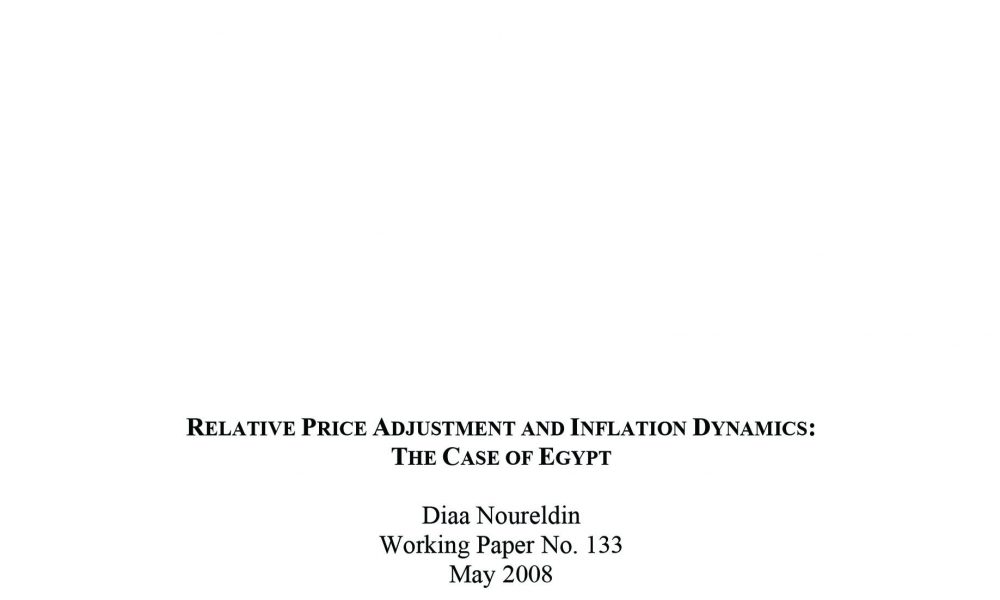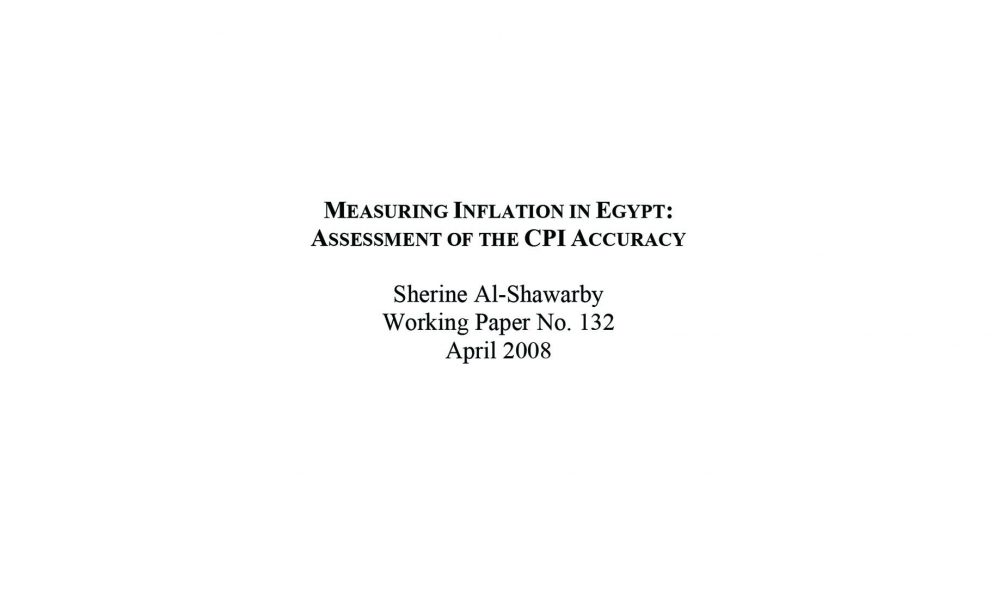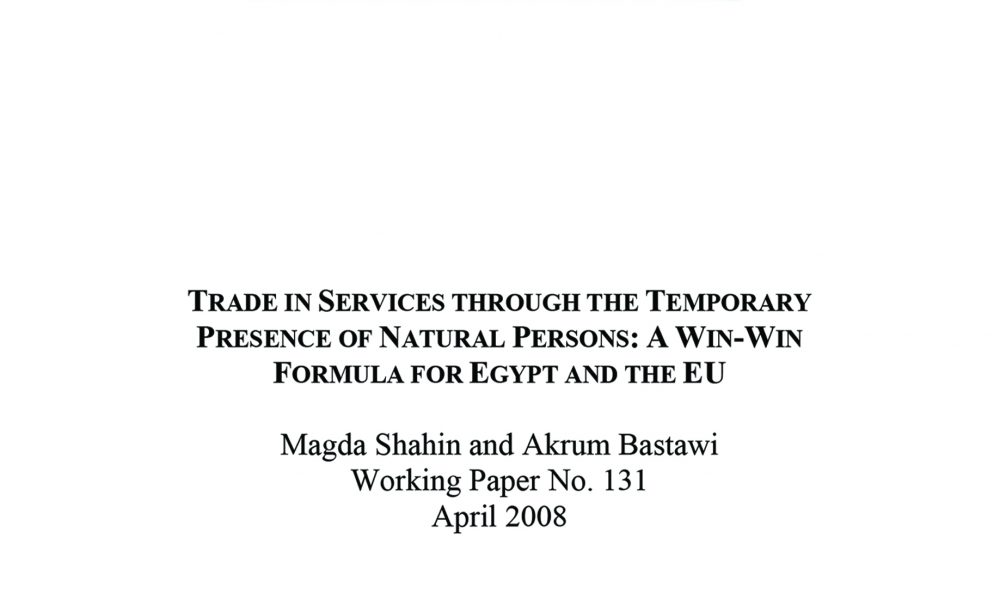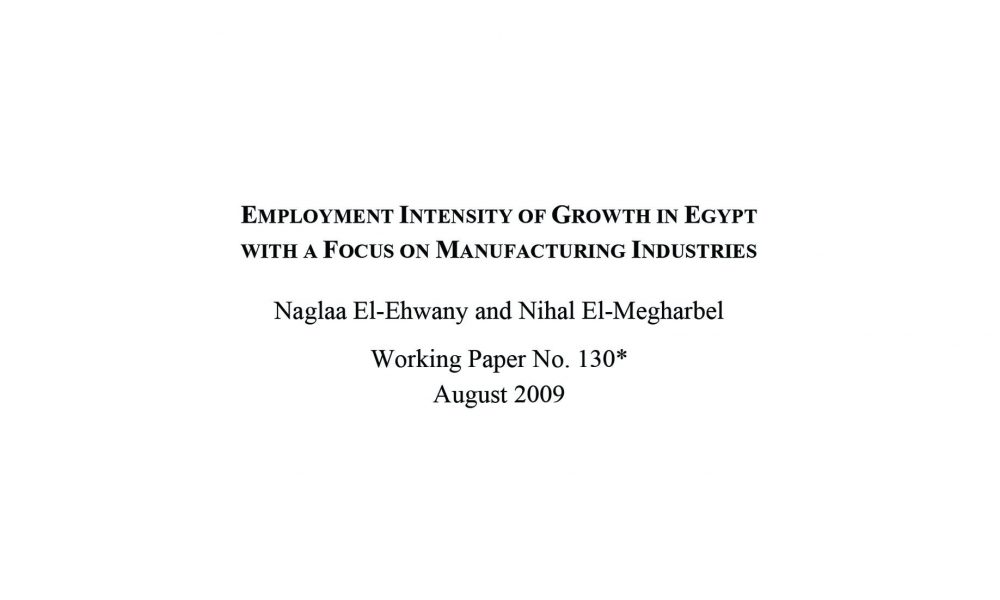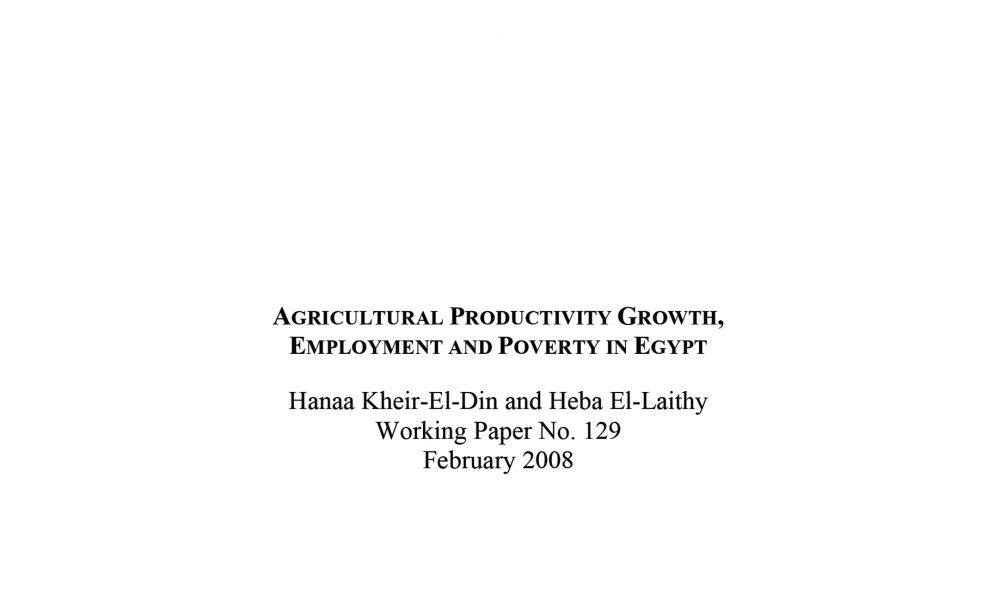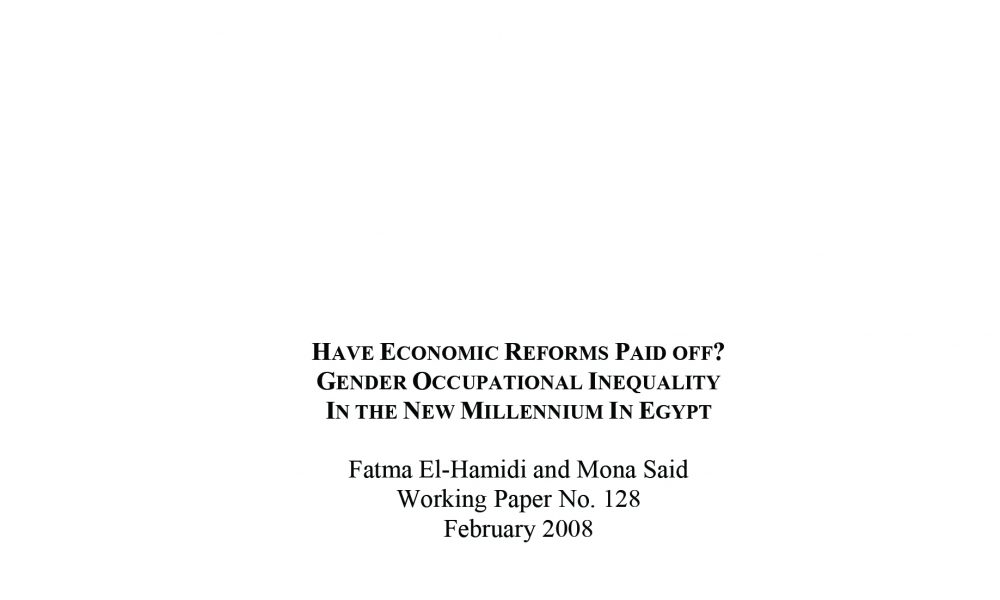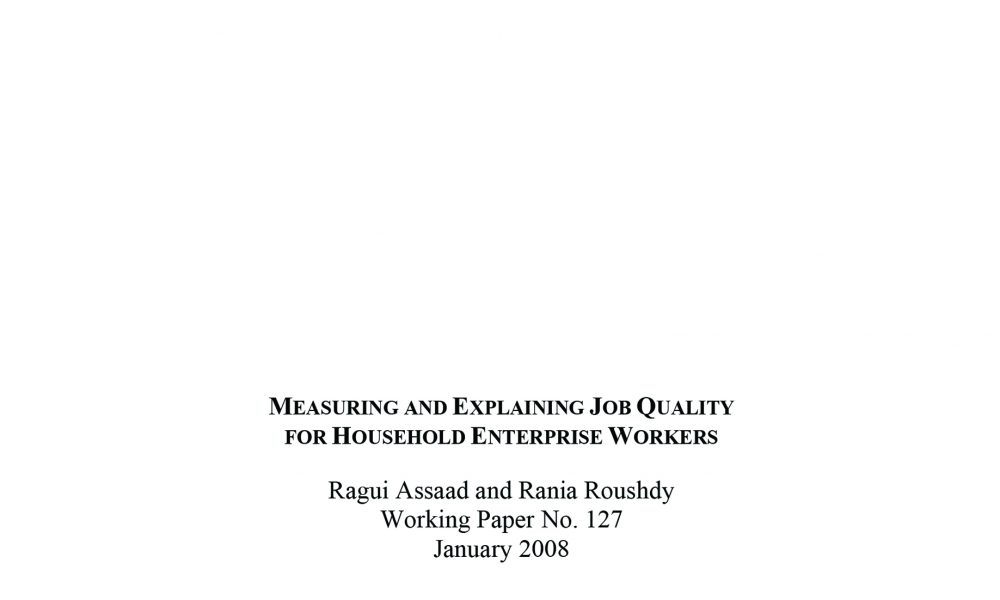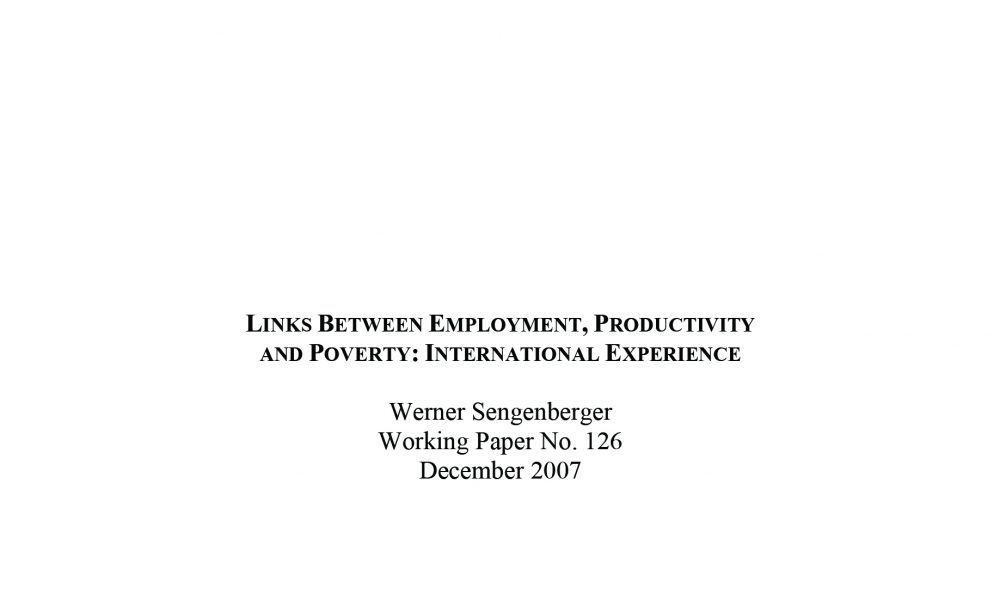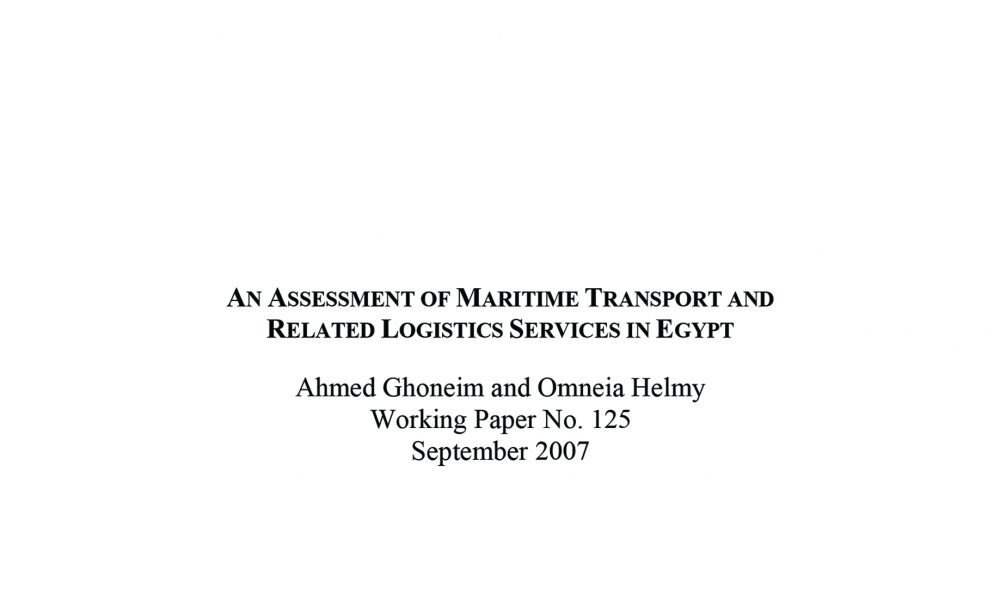Abstract: This paper examines the role of relative price adjustment (RPA) as a key determinant of inflation in Egypt during the two recent inflationary waves starting 2003. The first three moments (the mean, variance and skewness) of the cross-section distribution of the detailed components of the Consumer Price Index (CPI) are analyzed to show how […]
Abstract: This paper examines the accuracy of measuring headline inflation in Egypt. Thus, the methodological framework of this paper includes a presentation of the most commonly used price indices in order to see why the CPI has become the main reference of headline inflation in most—if not all—countries. The study then discusses the construction of […]
Abstract: With the stall in multilateral negotiations at the World Trade Organization (WTO), many countries are pursuing preferential trade arrangements in the area of trade in services at bilateral and regional levels, including the one between the European Union (EU) and Egypt. In that context, this paper explores a range of strategic issues in one […]
Employment Intensity of Growth in the Egyptian Economy, with a Focus on the Manufacturing Industries
Abstract: The employment-intensity of growth is an important issue that merits in-depth study and analysis in the case of the Egyptian economy as it directly impacts economic policymaking. With that in mind, the study sets out to identify the sectors and sub-sectors in which output growth generates more jobs. It also sheds light on the […]
Abstract: The purpose of this paper is to investigate the importance of agricultural productivity growth for generating employment and alleviating poverty in Egypt. Specifically, it attempts to answer the following questions: How important is agriculture for income and employment generation in rural Egypt? What is the relationship between agricultural productivity and poverty reduction? What are […]
Abstract: This study assesses the impact of recent liberalization measures and institutional changes in Egypt on gender wage and occupational inequality. Using newly released Labor Force Sample Surveys (LFSS) for the years 2000-2004, a slight drop in public sector employment and a comparable increase in private sector employment for women is observed. Regardless of sector […]
Abstract: It is quite challenging to operationalize the notion of job quality for wage and salary employment, and in turn more challenging to devise a measure of job quality for non-wage workers. This paper takes up this challenge and attempts to provide a measure of job quality among the self-employed and unpaid family workers in […]
Abstract: This study provides an assessment of the status of maritime and related logistics services in Egypt in order to identify the impact of trade liberalization on this sector. Moreover, it attempts to identify the reasons behind the weak performance of some maritime and related logistics services, and provides some policy and regulatory suggestions to […]

